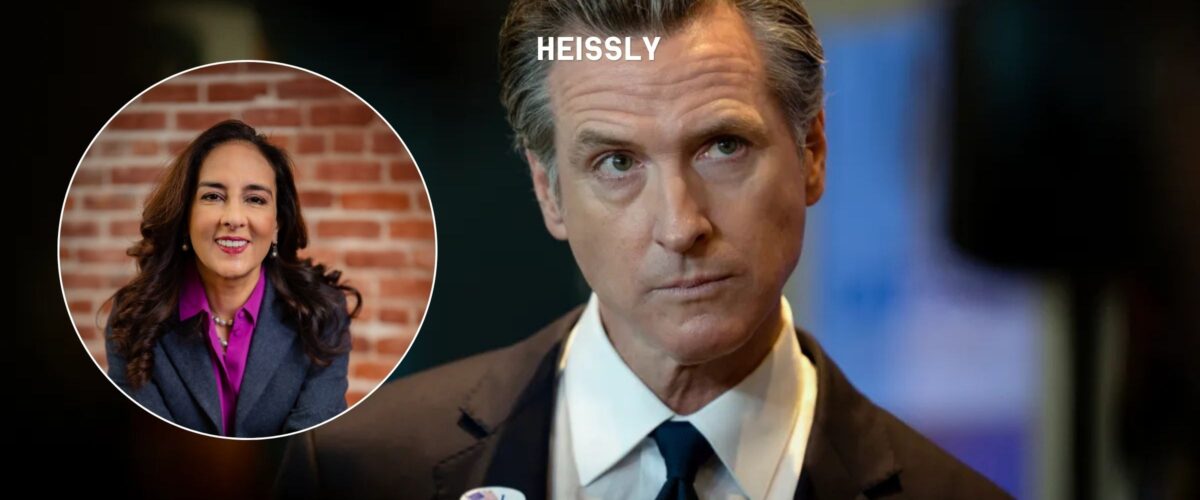Governor Gavin Newsom is furious now that ELECTION MONITORS are being sent by Harmeet Dhillon to make sure he doesn’t cheat in the November election.
What’s going on
-
The U.S. Department of Justice (DOJ) announced it will dispatch federal election observers to five California counties — Los Angeles, Orange, Kern, Riverside and Fresno — ahead of the November 4 2025 election. KQED+3The Washington Post+3KVPR+3
-
The deployment was formally requested by the California Republican Party in a letter to Harmeet K. Dhillon (who leads the DOJ Civil Rights Division) citing “irregularities” in those counties. KVPR+2Azat TV+2
-
Gov. Newsom strongly criticized the move, calling it federal overreach and an intimidation tactic aimed at suppressing votes. KQED+2azexpress.net+2
What Newsom says
-
“They have no business doing that. They have no basis to do that — this is a state election for a statewide constitution.” The Gateway Pundit+1
-
He frames the monitors’ deployment as part of a broader scheme: that this is a “preview” of future interference and is meant to “create the pretext” to claim fraud if the proposition passes. KQED+1
-
He warns about what he describes as the possibility of other federal actors (e.g., U.S. Immigration and Customs Enforcement or Border Patrol) being deployed near polling places. LAist+1
What the DOJ / Dhillon say
-
Harmeet Dhillon and the DOJ say that the monitoring is about transparency, ballot security, and ensuring compliance with federal law. VINnews+1
-
Dhillon pointed out that federal election observers have been used under past (Democrat led) administrations, pushing back on the intimidation narrative. redstate.com
Why this matters
-
It highlights the tension between state-run elections and federal oversight. California argues the ballot in question is entirely a state measure (no federal office on the line) so federal involvement is improper. The Washington Post
-
The five counties selected are high-stakes for the upcoming special election involving Proposition 50, a redistricting initiative that could shift several U.S. House seats. The Washington Post+1
-
For Newsom and other state Democrats, the timing and targeting seem politically charged — they see it as an effort not just to monitor but to preemptively challenge the legitimacy of the vote if it goes against GOP interests.
-
For Republicans/DOJ supporters, it’s framed as ensuring fairness and preventing potential irregularities in key counties.
Key questions & issues
-
Jurisdiction: Does the federal government have the standing to send monitors for a purely state election (no federal offices)? Newsom says no; DOJ argues yes under its civil-rights/election integrity mandate.
-
Effect on voters: Could the presence of monitors and federal agents at polling places suppress turnout — particularly among minority or historically under-represented communities? That’s a concern raised by California officials.
-
Transparency vs Intimidation: The same action (“monitors on site”) is seen by one side as promoting integrity, by the other as creating a chill around voting.
-
Pre-emptive legitimacy play: Newsom and others argue the monitors are part of shaping the narrative so that if results aren’t favorable to Republicans, allegations of fraud or rigging are easier to make.
-
Selection of counties: Why these particular counties? The GOP letter cites “irregularities,” but critics point to their high-profile nature and Democratic leanings. KQED+1
My assessment
Newsom’s reaction is fierce and politically charged — his framing suggests he sees this not simply as oversight but as interference. His language about suppression and intimidation is strong. On the flip side, the DOJ’s decision, while not unprecedented, is unusual in its focus on a state-only election (i.e., no federal office involved) and in a very strategically consequential state.
If I were to pick what’s driving the tension:
-
Newsom perceives this as a power play by the federal government (and GOP allies) to influence or undermine a key Democratic-led initiative in California.
-
The DOJ and GOP perceive the counties and election as high-risk for irregularities, and are using this as an exercise of federal oversight.
-
The broader implication is a battle over the narrative of legitimacy: who sets the rules, who watches the watchers, and how much “observation” becomes “interference.”
